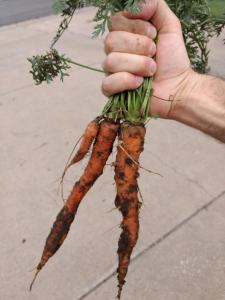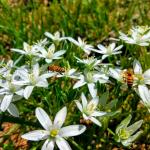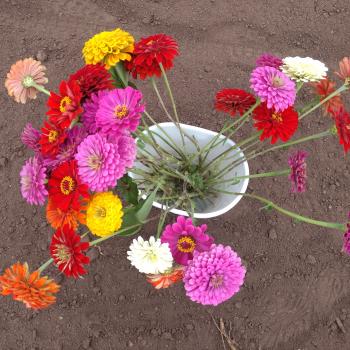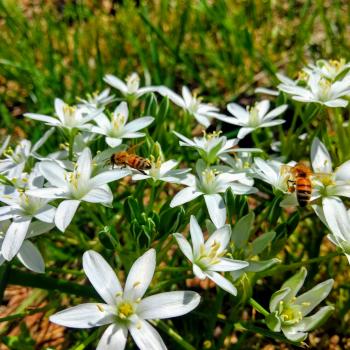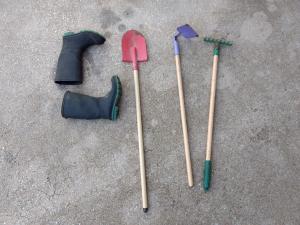
My wife came home after visiting some friends. “They’ve started a garden, and they’re trying to till it by hand!” she cried. I dropped my work. “Quickly, son,” I yelled. “Get the rototiller, gloves, and those cabbages. To the pickup!” This sounds like a job for Pastor Gardener.
Within an hour, our friends’ fresh plot was tilled and a row of cole plants patted into the ground. It’s all in a day’s work.
Our friends aren’t alone in their sudden interest in gardening. There’s been a nationwide spike in folks eyeing that swathe of backyard fescue as prime real estate for food self-sufficiency. Seeds are flying off the shelves along with the toilet paper. Burpee seed company reports that they have been “flooded with vegetable orders.”
What’s more, chicken hatcheries have seen orders for laying breeds jump as eggs vanish from store shelves and prices hit an all-time high. Cackle Hatchery says sales have increased 100%.
Keeping a garden and tending chickens are always great ideas, in my opinion. Both give us a chance to get our hands dirty and develop a sense of ownership and investment in the food we eat. Gardening helps us learn to care for the soil, which has often been mistreated, brushed off as mere dirt, when in fact it’s a vibrant microcosm of fungus, bacteria, and arthropods whose interrelationships we have only begun to understand and whose well-being we’ve only lately come to respect.
But above all, in this time of anxiety and illness, when images of pop-up morgues in New York and Italy creep across the news, we need more than streaming and video games to get us through. In this season of destruction, we need to do something creative. We need to garden.
In our backyard garden, asparagus is pushing purple and stout through the crumbly earth. The peach tree is blossoming and the apples are deliberating on it. We’ve readied the ground to receive the tomatoes and peppers that are sprouting under a grow light in our basement. In summer, chickens will stalk grasshoppers across the lawn, and blackberries and raspberries will sag on their trellis wires. We’ll dig garlic and snip lettuce and carry wide, bleeding bowls of strawberries into the kitchen. We’ll help our friend dig the buried treasure of his potatoes, share some, and stash a few for ourselves. We’ll weep as we cut gorgeous fresh crimson onions. In the fall, we’ll carry thick-skinned squash that will last through next March into the dark basement.
Through all of this, in a way that strikes an ancient chord, we’ll be joining God in the ongoing work of creation. Part of Adam and Eve’s original vocation was to “till and keep” the earth (Genesis 2:15). I’m convinced that there’s something inside of us that still wants to make good on that call, no matter how much pavement may surround us.
Of course, it won’t all turn out according to our bucolic dreams. One of the perennial lessons of gardening is that things fall apart. The seeds don’t all sprout. Gushing rains transform the strawberries into a pale, mushy slug buffet. Coons raid the corn. Last year, a fox and an owl conspired to eat nearly all of our chickens. That’s part of the garden experience too. Adam’s vocation was also Adam’s curse: “By the sweat of your brow you will eat your food until you return to the ground” (Genesis 3:19)
But one of the things I’ve learned in gardening is that despite all the hardships, the disasters and near-disasters, God has built a tremendous grace into the soil. Even the most unskilled gardeners can harvest a bounty. Plant a lot of things, and something will grow. We can’t control what will happen in our garden. But we can show up faithfully to do the work, tend to all that’s beyond our control, and receive what the earth produces as a gift.
Maybe that’s just what we need in our lives right now.
